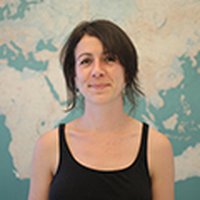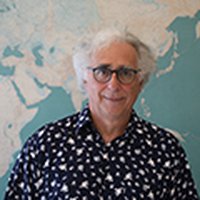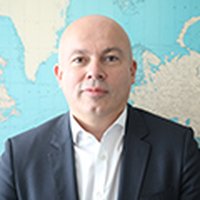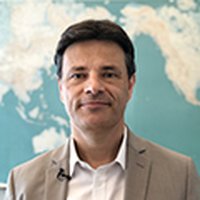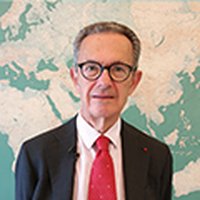Urban Mobilities in Africa
- Duration: 5 weeks
- Effort: 10 hours
- Pace: ~2 hours/week
- Languages: English and french
What you will learn
At the end of this course, you will be able to:
At the end of this course, you will master the main mobility issues in African cities, the implementation of new urban transport projects to meet the increasing demand and the actors who carry out these projects.
At the end of the MOOC Urban Mobility in Africa, you will be able to:
· Understand the characteristics of mobility in African cities
· Identify actors and tools available to measure transport supply and demand
· Build an integrated vision of mobility and land use planning
· Identify the transport activities that need to be financed and the main existing sources of funding
· Understand project managers’ responsibilities in carrying out urban transport projects
Description
By 2050, Africa will be home to 1.5 billion people. To meet this growth and the mobility needs of citizens while building more sustainable and inclusive cities, major metropolises are developing mass transit systems, such as BRTs and tramways or even metros that are spreading across the continent. However, the implementation of these projects depends on a prior understanding of mobility peculiarities in African cities, on the construction of a long-term vision and on solid governance and financing models.
These elements are at the heart of the MOOC Urban Mobility in Africa! After the first edition with more than 3,000 people enrolled, this second session of the MOOC is aimed at a wider audience by offering English subtitles for the videos and a translation of the teaching materials.
Format
The MOOC takes place over 5 weeks (and an introductory week called week 0), each comprising four videos of about 12 minutes. One to two hours of additional work are required each week. The course is structured around the following themes:
- Characteristics of urban mobility in Africa,
- Mobility supply and demand,
- Governance and planning of mobility,
- Financing of urban mobility,
- Project management of transport projects.
Each learning week is composed of thematic videos featuring experts, video testimonials presenting feedback and projects in African metropolises, additional resources made available by the speakers and an evaluation quiz to help memorize key concepts and principles stated by the experts.
During the 5 learning weeks, a webinar will be offered every Wednesday afternoon to allow you to interact with the pedagogical leader of the sequence or with experts on the topic. Questions will be proposed by the lecturer before the webinar on the course forum to ensure interactivity during the webinar.
Prerequisites
The MOOC is designed for the general public and seeks to accommodate the interests of a varied audience while transmitting operational knowledge useful to specialists. No prerequisite level is required.
Assessment and certification
Evaluation
Each week, a quiz is offered to check your knowledge and evaluate your progress. A score of 60% is required to validate the quiz, and 3 attempts for each quiz will be possible.
A certificate of completion will be issued by Senghor University.
Certification
This MOOC offers the possibility of obtaining a certificate issued by the FUN platform. Learners who wish to do so can register for the online exam. This certifies your identity and the completion of the exercises under examination conditions (no document, limited time, etc.). The exam entitles you to 2 ECTS credits. Obtaining the certification is independent of following and validating the weekly quizzes.
To obtain the certification, you must obtain a minimum score of 70% on the final certification exam.
Course plan
- Week 0: Introduction to the platform
- Week 2: Supply and Demand: Service, Operators, Regulation
- The objective of this sequence is to understand the mobility issues specific to African cities. To do this, it is necessary to review certain general notions used in the field of urban mobility and to recontextualise them in African cities. Based on these observations, various levers, that can be mobilised to take into account the externalities specific to African cities, are presented.
- During this week’s classes, the modalities of transport and mobility governance are addressed through the question of the management and regulation scale, and the implementation of local Public Transport Authorities. The modalities and tools of mobility planning are also at the heart of this week, and in particular the articulation between mobility planning and urban development.
- In this week's course, learners will understand how to put in place sustainable urban transport financing plans. This involves identifying the different activities that need to be financed beyond the initial investments, the mechanisms that can be put in place and the actions that need to be taken to ensure the sustainability of the urban transport budget
- The last week of the course presents concrete cases of implementation of urban transport projects. Through these different cases, the objective is to identify good practices that can be mobilised by the project managers and the pitfalls to avoid. These case studies are intended to facilitate the implementation of sustainable and inclusive transport projects.
Course team
Solène Baffi
Categories
Dominique Breuil
Categories
Bertrand Goalou
Categories
Jean-Jacques Helluin
Categories
Christian Philip
Categories
Organizations
Partners

The French Development Agency (AFD)
The French Development Agency (AFD) is a public establishment that finances, supports and accelerates transitions towards a fairer and more sustainable world. AFD is a French platform for official development assistance and sustainable development investment. It works with its partners to build shared solutions with and for people in developing countries.
AFD's teams are involved in more than 4 000 projects in the field, in Overseas France and in 115 countries, for the common goods of humanity - climate, biodiversity, peace, gender equality, education and health. AFD is thus contributing to France's and the French people's commitment to the Sustainable Development Goals. For a world in common.
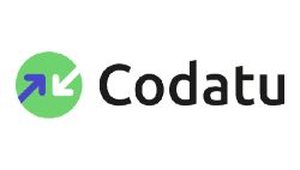
CODATU
CODATU (Cooperation for the Development and Improvement of Urban and Peri-urban Transport) is an association under French law (1901 Act). CODATU was born out of the world conference on urban transport organised in Dakar in 1980. It is an international association whose objective is to promote sustainable urban mobility policies through training, animation and scientific, technical, economic and social exchanges concerning urban and peri-urban transport systems. It is based on exchanges of experience between developing countries and the more formerly industrialised countries.
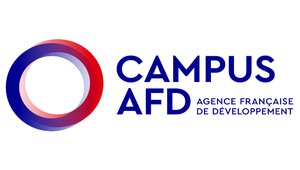
Campus AFD
Campus AFD is the entity of the French Development Agency Group dedicated to training its partners and sharing knowledge and experience. From Marseille, and in many countries, it has offered an original educational offer to help major economic, social and environmental transitions. Its innovative methodologies, based on knowledge sharing, collective intelligence and active learning formats, enable development actors to learn differently and to acquire the skills and attitudes necessary for the success of high-impact initiatives, projects and policies.
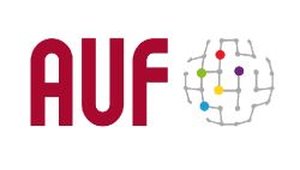
AUF
The Agence Universitaire de la Francophonie (AUF) brings together 1007 universities, grandes écoles, university networks and scientific research centres using the French language in 119 countries. Created 60 years ago, it is one of the largest associations of higher education and research institutions in the world. It is also the operator for higher education and research of the Francophonie Summit. As such, it implements, within its field of competence, the resolutions adopted by the Conference of Heads of State and Government of countries sharing the French language.
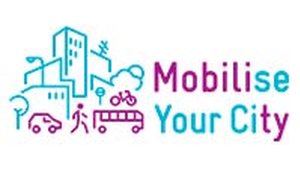
MobiliseYourCity is a multi-donor action and a partnership for operational coordination of sustainable urban mobility planning and investment programming.
License
License for the course content

Attribution-NonCommercial-ShareAlike
You are free to:
- Share — copy and redistribute the material in any medium or format
- Adapt — remix, transform, and build upon the material
Under the following terms:
- Attribution — You must give appropriate credit, provide a link to the license, and indicate if changes were made. You may do so in any reasonable manner, but not in any way that suggests the licensor endorses you or your use.
- NonCommercial — You may not use the material for commercial purposes.
- ShareAlike — If you remix, transform, or build upon the material, you must distribute your contributions under the same license as the original.
License for the content created by course participants

Attribution-NonCommercial-ShareAlike
You are free to:
- Share — copy and redistribute the material in any medium or format
- Adapt — remix, transform, and build upon the material
Under the following terms:
- Attribution — You must give appropriate credit, provide a link to the license, and indicate if changes were made. You may do so in any reasonable manner, but not in any way that suggests the licensor endorses you or your use.
- NonCommercial — You may not use the material for commercial purposes.
- ShareAlike — If you remix, transform, or build upon the material, you must distribute your contributions under the same license as the original.



